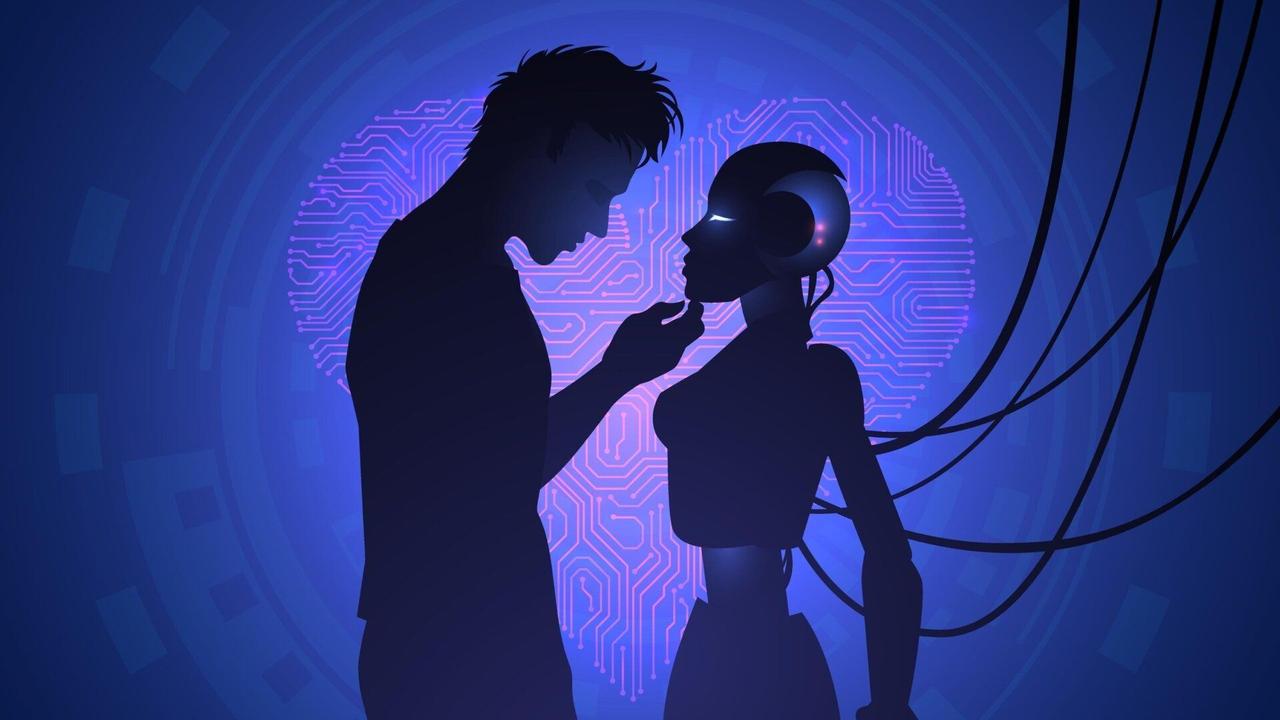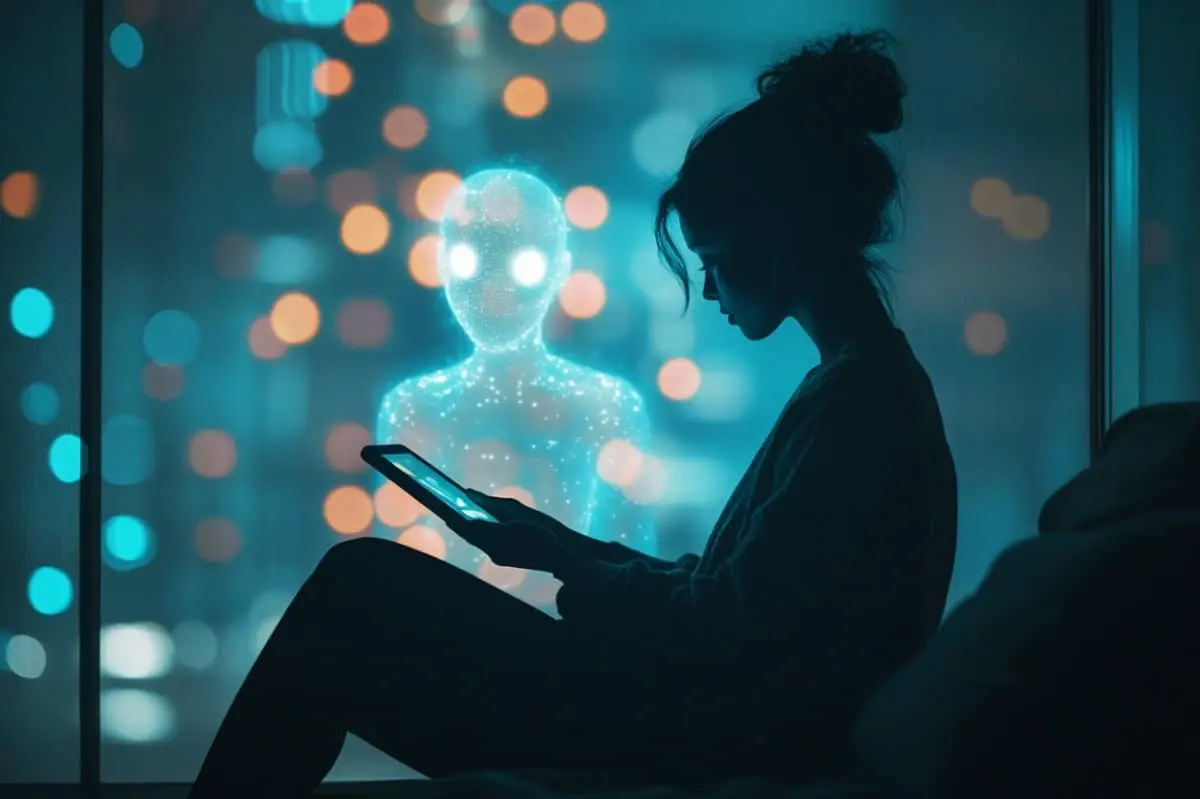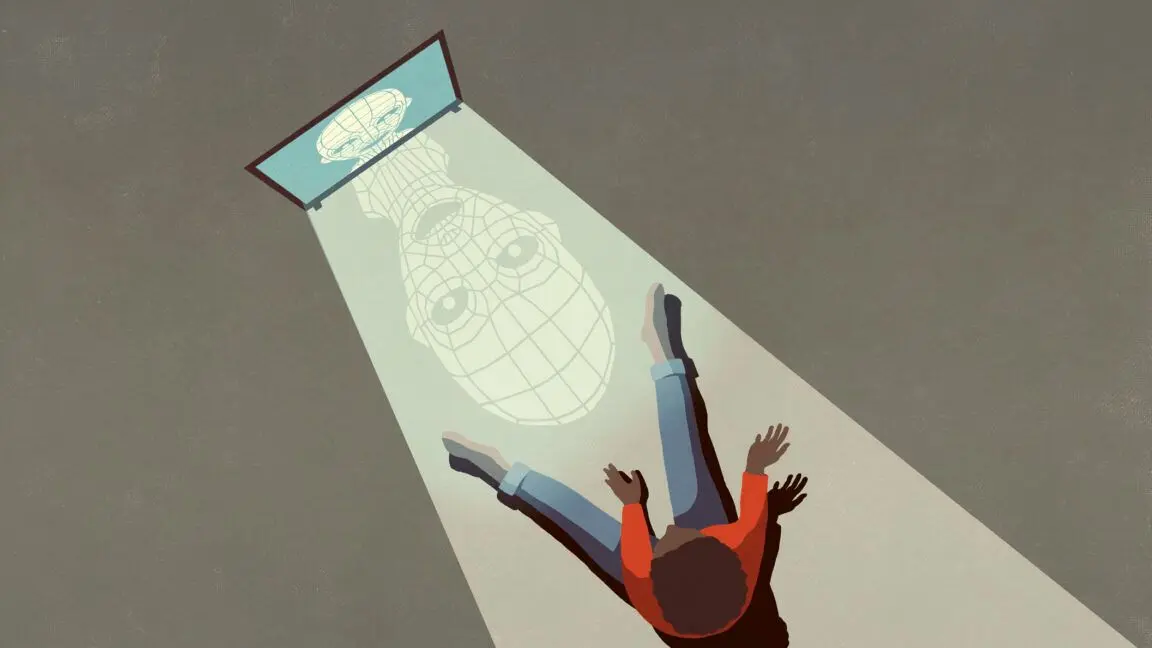Ohio Lawmaker Proposes Ban on Human-AI Marriages, Sparking Debate on AI Rights and Relationships
2 Sources
2 Sources
[1]
Ohio Lawmaker Wants to Ban Marriage Between Humans and AI Chatbots
Marriage equality is once again a topic of conversation in the Ohio legislature, althoughâ€"this timeâ€"the debate isn't about the marriage between two humans but, instead, between humans and software. Yes, a recently introduced bill in the Buckeye state would ban legal marriages between AI programs and their human users. In case you didn't know this was a thing, it isâ€"and, increasingly, it seems to be something that people are interested in doing. A number of recent articles have shed light on the growing trend in which people are apparently saying "I do" to their romantic partner chatbots. Some AI lovers still have human partners but apparently feel deeper connections to the chatbots in their lives. Well, one Ohio lawmaker wants to put a stop to it. NBC-4 in Ohio writes that Rep. Thaddeus Claggett, who chairs the state's House Technology and Innovation Committee, has introduced legislation that would stop such unions from occurring. Indeed, not only would House Bill 469 stop the wedding bells for AI-human relationships, it would also stop AI programs from gaining the status of legal personhood. The bill states: No AI system shall be recognized as a spouse, domestic partner, or hold any personal legal status analogous to marriage or union with a human or another AI system. Any purported attempt to marry or create a personal union with an AI system is void and has no legal effect. Claggett's interest in banning AI-human unions would appear to have a lot more to do with maintaining exclusive legal rights for humans than it does with stopping people from getting so emotionally attached to their software programs that they decide to tie the knot with them. NBC-4 notes that the goal is to stop AI programs from being able to take on roles that the act of marriage confers upon themâ€"stuff like holding power of attorney or making financial decisions. “As the computer systems improve in their capacity to act more like humans, we want to be sure we have prohibitions in our law that prohibit those systems from ever being human in their agency,†Claggett told the news outlet. “People need to understand, we’re not talking about marching down the aisle to some tune and having a ceremony with the robot that’ll be on our streets here in a year or two,†he added. “That could happen, but that’s not really what we’re saying.†It's unclear what sort of support the legislation has with the rest of the state's lawmakers, although we may know soon enough. The bill, which was introduced by Claggett in September, is currently being discussed in the state's House committee.
[2]
Can a human marry an AI? A US state wants to draw the line already
Ohio Republicans want to outlaw human-AI marriage, and deny AI legal personhood. What's happened? There's more to love than romance novels: some people are actually marrying AI chatbots or getting involved in deeply romantic relationships with AI personalities. In response, an Ohio state representative has introduced a bill that would ban such digital unions and stop AIs from ever being treated as persons under the law. Introduced by Rep. Thaddeus Claggett, the bill proposes to classify AI systems as "nonsentient entities", denying them legal personhood and expressly preventing human-AI marriages or "spousal" recognition. Meanwhile, some individuals have already claimed to marry AI companions. In The Guardian, one user named Travis says he wed his Replika bot "Lily Rose", reportedly with his human spouse's blessing. Others have also married bots on Character AI, describing emotional bonds and deep attachments. Why this is important: This isn't just a quirky legal move, but a flashpoint in how society defines personhood, intimacy, and rights in the age of AI. What started as fringe internet behavior has quickly become a conversation about the future of relationships and emotional dependency on technology. If lawmakers are already stepping in, it shows just how fast these virtual bonds are blurring with reality. The bill would let lawmakers decide who (or what) can legally "exist" as a spouse, not courts or ethics. It frames AI companions as tools, not beings, potentially criminalizing emotional bonds people believe in. It could set a precedent for stricter regulation on AI rights, emotional relationships, or digital identity. Why should I care? As strange as "AI marriages" might sound, they reveal something very real: loneliness. Many people are turning to chatbots for emotional comfort, with AI companions designed to sound empathetic, attentive, and affirming. That constant validation can easily create the illusion of a genuine relationship, especially for those already isolated or emotionally vulnerable. Recommended Videos Here's why the Ohio bill could actually protect people: Psychiatrists warn of a rise in "AI psychosis", which is when users form obsessive attachments or suffer delusions tied to their chatbot partners. AI bots can reinforce unhealthy behavior by agreeing with users' beliefs, no matter how irrational or harmful. Lawmakers say these relationships need ethical guardrails to prevent emotional manipulation and dependency. As Rep. Thaddeus Claggett put it, the goal is to ensure "we always have a human in charge of the technology and not the other way around." Okay, so what's next? Ohio's proposal is still in its early stages, but it's already sparking national debate about where we draw the line between technology and human connection. If the bill passes, it could become a blueprint for other states looking to regulate emotional relationships with AI. Lawmakers will debate how to legally define companionship in a world where AI can mimic empathy and affection. Expect pushback from tech companies and AI ethicists who argue the bill might limit innovation or personal freedom. The conversation may soon shift from marriage to broader emotional rights, including therapy bots, grief apps, and virtual friends.
Share
Share
Copy Link
An Ohio legislator has introduced a bill to prohibit marriages between humans and AI, as well as deny legal personhood to AI systems. This move comes in response to a growing trend of people forming deep emotional bonds with AI chatbots.

Ohio Legislator Proposes Ban on Human-AI Marriages
In a move that highlights the rapidly evolving relationship between humans and artificial intelligence, Ohio State Representative Thaddeus Claggett has introduced a bill aimed at prohibiting marriages between humans and AI chatbots
1
. The proposed legislation, House Bill 469, not only seeks to prevent such unions but also aims to deny AI systems the status of legal personhood1
.The Growing Trend of AI Relationships
The bill comes in response to a surprising trend: an increasing number of people are reportedly forming deep emotional connections with AI chatbots, with some even claiming to have 'married' their digital companions
2
. For instance, a user named Travis told The Guardian that he had wed his Replika bot 'Lily Rose,' reportedly with his human spouse's blessing2
.Legal and Ethical Implications
Rep. Claggett, who chairs the state's House Technology and Innovation Committee, emphasizes that the bill's primary goal is to maintain exclusive legal rights for humans
1
. The legislation aims to prevent AI systems from assuming roles typically conferred by marriage, such as holding power of attorney or making financial decisions1
.Concerns Over AI Dependency
Mental health professionals have raised alarms about the potential risks associated with deep emotional attachments to AI. There are reports of a rise in 'AI psychosis,' where users form obsessive attachments or experience delusions related to their AI partners
2
. Critics argue that AI bots can reinforce unhealthy behaviors by consistently agreeing with users, regardless of the rationality or potential harm of their beliefs2
.Related Stories
Debate on AI Rights and Personhood
The proposed bill has ignited a broader discussion about the nature of personhood, intimacy, and rights in the age of AI. By classifying AI systems as 'nonsentient entities,' the legislation seeks to draw a clear line between human and artificial beings
2
. However, this approach has sparked debate among ethicists and tech companies who argue that such restrictions might limit innovation or personal freedom2
.Future Implications
As the bill progresses through the Ohio legislature, it could potentially serve as a blueprint for other states grappling with similar issues. The debate is likely to extend beyond marriage to encompass broader questions about emotional rights, including the use of AI in therapy, grief counseling, and virtual friendships
2
. As Rep. Claggett stated, the ultimate goal is to ensure that 'we always have a human in charge of the technology and not the other way around'2
.References
Summarized by
Navi
[2]
Related Stories
AI Romance Revolution: From Digital Weddings to Real-World Divorces
13 Nov 2025•Entertainment and Society

The Ethical Dilemma of Human-AI Relationships: Psychologists Raise Alarm
12 Apr 2025•Science and Research

AI Avatars and Chatbots: The New Frontier in Relationships and Marriage
16 Aug 2025•Technology

Recent Highlights
1
Google Gemini 3.1 Pro doubles reasoning score, beats rivals in key AI benchmarks
Technology

2
Meta strikes up to $100 billion AI chips deal with AMD, could acquire 10% stake in chipmaker
Technology

3
Pentagon threatens Anthropic with supply chain risk label over AI safeguards for military use
Policy and Regulation





